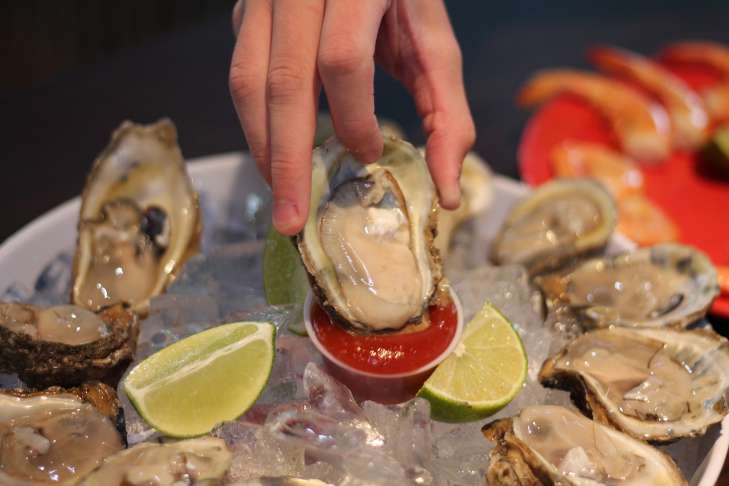They are valued for their sea salty taste, soft jelly-like texture and beneficial properties.
Most often they are eaten raw, deep-fried or lightly boiled.
Oysters are a product for everyone: the specific taste, sea smell and appearance of the mollusk are not to everyone’s liking.

What are the benefits of oysters
Oyster is extremely rich in vitamins B12, iron, zinc and other beneficial microelements.
The presence of Omega-3 in oysters has a beneficial effect on the health of the heart and blood vessels.
Oyster has a higher lipid content than other seafood. This means that it contains more vitamins A and D.
Regular consumption of oyster pulp helps strengthen the immune system, normalize metabolism, improve the functioning of the cardiovascular system, liver and kidneys;
Oysters help to get rid of excess weight and are included in the diet.
Should you chew oysters
The pulp does not need to be chewed, it just needs to be held in the mouth for a few seconds to enjoy the taste and swallowed.
The juice remaining in the sink is drunk. Oysters serve as a pre-dinner snack, and they are most often paired with champagne or dry white wine.
Why can oysters be eaten raw
It is best to eat fresh shellfish raw: this way it retains a maximum of nutrients, fatty amino acids and vitamins.
Many people know that lemon is served with oysters to check freshness.
The mollusk instantly reacts to the contact of a few drops of lemon juice on its body.













